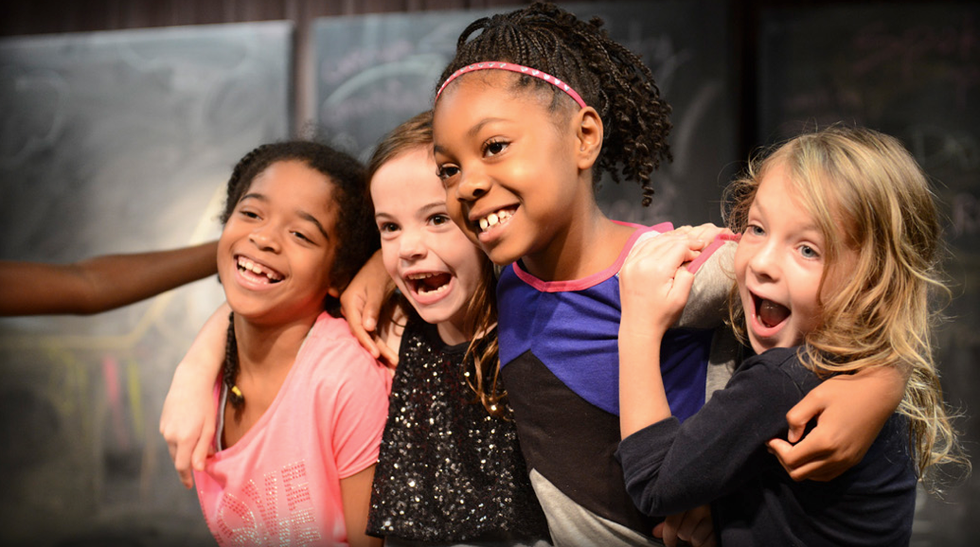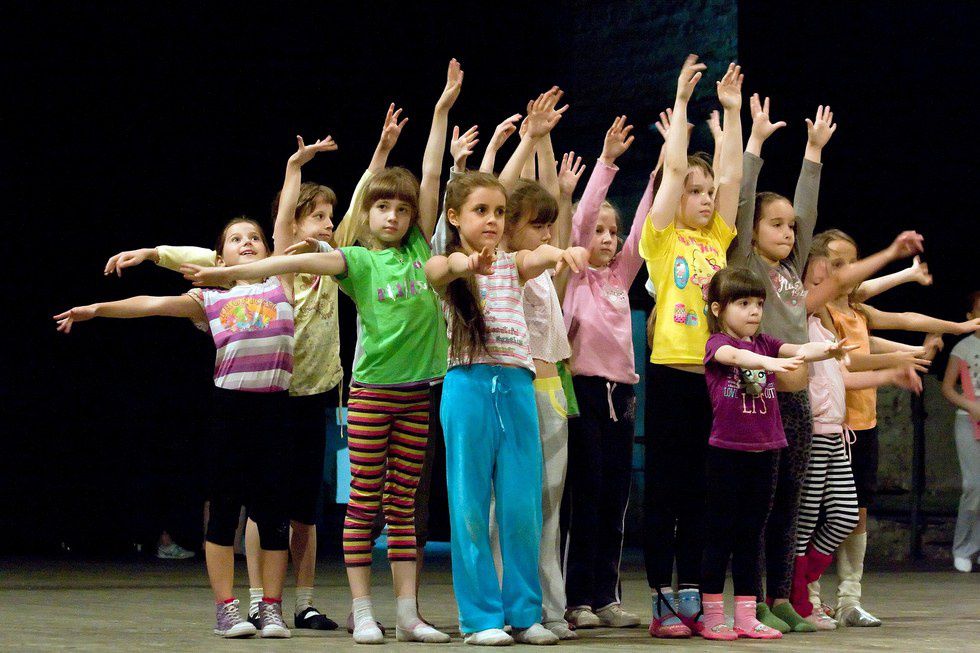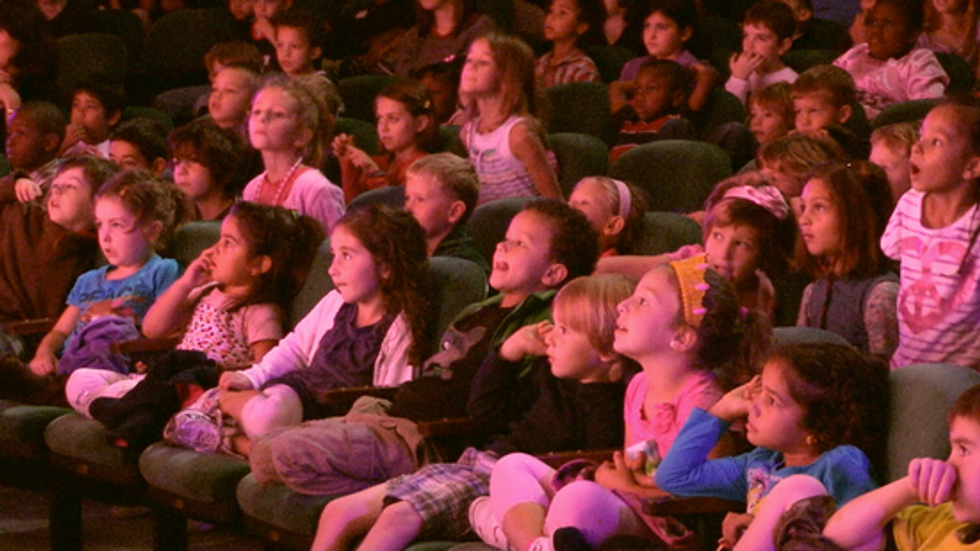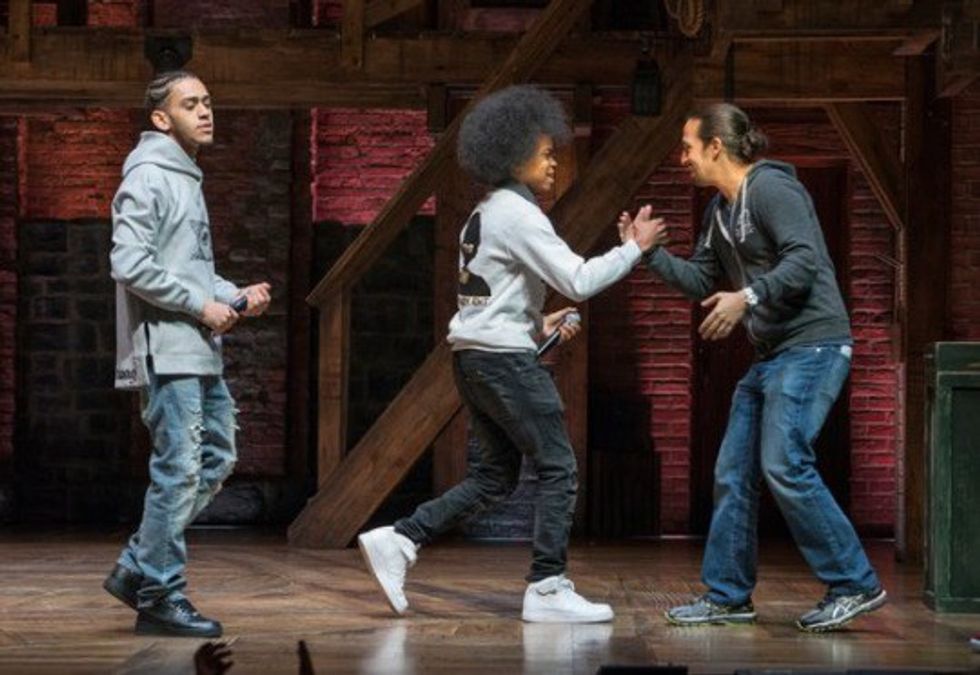It seems to be a truth universally ignored that our education system is missing something.
As the man-on-fire du jour Lin Manuel Miranda eloquently summed up in a recent interview: "The ultimate way art can be political is that I think it engenders empathy which is the thing politicians can't seem to do." Empathy and genuine concern for others' well-being is what not only politicians but too many people in general seem to be lacking in disturbing quantities. One only needs to sneak a peek at the news on any given day to see that fear-of-the-unknown is what most global issues stem from at their basest level.
The Pulitzer, Tony, Emmy and Grammy award-winning "Hamilton" creator's statement holds leagues of power under its simple exterior as he outlines the most important ingredient of a child's education that often goes unquantified during discussions of arts education in the public school system: emotional intelligence.
Miranda extrapolated on his thesis by saying: "If you feel like you know someone because you've spent two hours chronicling their life in a story or you've seen some movie that gets you under their skin and in their heart, you can't dismiss them as other anymore."
Therein lies the heart of the empathy discussion; what Miranda is getting at is the fact that once a young mind has tried to experience the world through someone else's "shoes" so to speak, such as during a theatrical role, it can never revert back entirely to its previous perspective.
If you agree with intelligent thinkers such as philosopher Immanuel Kant, or simply with modern science, you understand that no child is born with hate or fear. They are born with what Kant would call "free will" to choose their own path and make their own choices according to how they are guided and educated. Hate and fear are the ugly motivations of horrific acts later in life, learned through experience and outside influence, that could be partially remedied through more empathetic training early in life.
Being able to see how alike people are in their wants and needs helps put aside fear of the "other" because they can understand them.
Besides building empathy and social awareness, the more generally accepted, similarly crucial skills that theatre and other artistic lessons achieve in students range from increased focus and concentration, to boosted confidence and improved social communication, to better spatial awareness, fitness, mind-body connection, lower drop-out rates, and overall higher academic success in every area.
What has been consistently treated as a frivolous expense and luxury must become a higher priority if the public school system wants to educate compassionate, well-rounded human beings instead of mentally proficient, but emotionally absent worker bees.
Performance may impact them the most immediately, but when a child or young adult views a play they also benefit by being able to connect both emotionally and intellectually to the material at hand.
The arts are debatably there to accomplish one thing: to make the audience feel and think. Have you ever considered what it's like to create art at that level? For the purpose of this article, theatre will the the format of art referenced, but the idea extends to all genres.
The "No Child Left Behind" act was primarily created to close the opportunity and achievement gaps between those in public versus private schooling situations; but by severely limiting arts education in public schools, the gap is only getting wider. Tina Beveridge of Lower Columbia College stated in a recent article: “If we marginalize all non-tested subjects, we create a system in which only the affluent members of our society have access to the most comprehensive and well-rounded educations, which widens the achievement gap rather than closes it.”
In the case of "Hamilton," Miranda's mega-hit musical based on the life and work of founding father Alexander Hamilton, through the art of theatrical storytelling and a refreshing rap language medium, history has never been more fascinating and accessible for students across the country, but nowhere more so than in "the greatest city in the world" itself.
Beyond simply engaging students through its cast recording or the lucky few who can afford the tickets, Miranda, with the help of Gilder Lehrman and the Rockefeller Foundation, has created an educational program for local New York City area and outer burrough schools that are referred to as "Title 1," meaning they are located in low-income areas that are below the poverty line.
These schools don't often get the chance to show off their passionate students, and when it comes to arts funding, there is little to be found. But, through their program, fondly known as "EduHam" around 20,000 students in total will receive $10 tickets to the show, a specific curriculum using show lyrics and content about Hamilton's work to connect to history and other subjects, as well as the opportunity to perform their own original work based on historical documents for the "Hamilton" company and Miranda himself.
Tying in lyrics and music that appeal to the students more naturally and engage their minds, helping them to more fully experience the stories and material they are learning, has encouraged more engagement, enthusiasm, and retention throughout the schools involved with EduHam. For one such example: click here.
It was announced this past Thursday that the Rockefeller Foundation, the foundation that helped subsidize EduHam has extended its limited $10 student tickets to "Hamilton"'s Chicago run. There is no word yet as to whether the performance and curriculum aspect of the program will follow as well, but for now at least, the musical will be made accessible to "young, scrappy, and hungry" Chicago students who would otherwise not have the opportunity.
Through programs like these, and by prioritizing the arts in schools, the up and coming generations will develop with greater understanding, empathy, and a broader perspective on the world around them that will serve them well in changing it for the better.






















